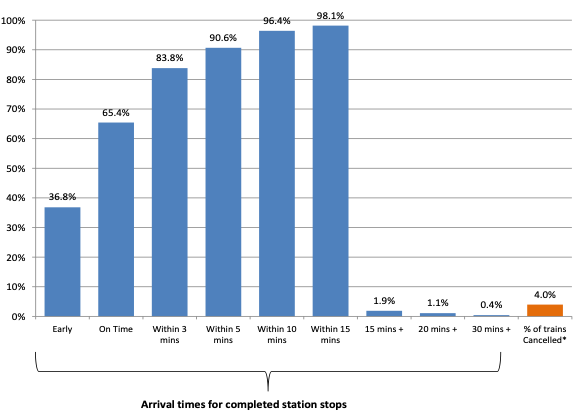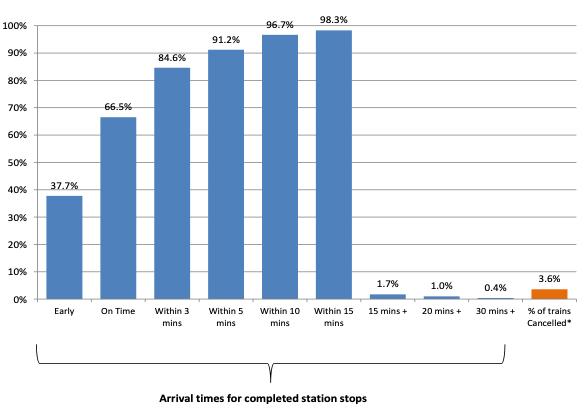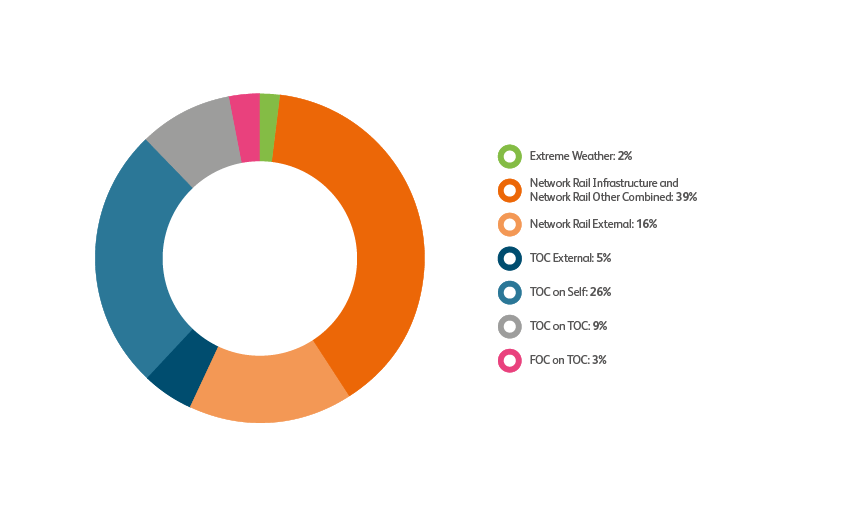Railway Performance
From Monday 1 April 2019, the UK Rail industry introduced a new, more detailed and precise set of measures to better understand how timely our trains are – from station to station, and from minute to minute.
The measures reflect that good performance needs to be delivered throughout the whole journey and that every minute matters for passengers.
The figures below illustrate these new measures using data from the most recent period – quantifying how punctually trains are reaching stations, from ‘early’ through to ‘30 minutes after’ the timetable.
More detailed data, including historic punctuality figures, can be found on the Office of Rail and Road (ORR) website.
Term Definitions
Last 4 weeks: 7 December 2025 – 3 January 2026
Number of recorded stations stops – 5,888,144
Passenger Trains Planned – 543,931
New industry measure – train punctuality at station stops 2025/26 (period 10)

Last 12 Months – 5 January 2025 – 3 January 2026
Number of recorded stations stops – 85,061,385
Passenger Trains Planned – 7,393,677
New industry measure – train punctuality at station stops – MAA as at 2025/26 (period 10)

Download On Time data for period 10 (xlsx 16 KB)
Delay responsibility
This chart below shows who was responsible for passenger train delays of 3 minutes or more.
For regulatory reasons, Network Rail is assigned responsibility for delays caused by external factors such as weather, trespass, vandalism, cable theft and fatalities.
Please note, due to the way this data is rounded the total delay responsibility figure can sometimes total 99.9%. This is a system generated figure so cannot be altered.

Download delay responsibility data for period 10 (xlsx 18KB)
Term definitions
Full details of the delay attribution rules can be found on the Delay Attribution Board’s page.
To find out more about what can cause delays on the network please visit our Delays explained page.